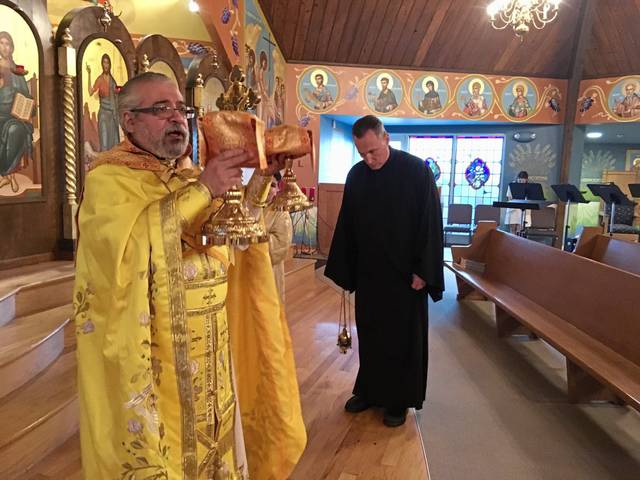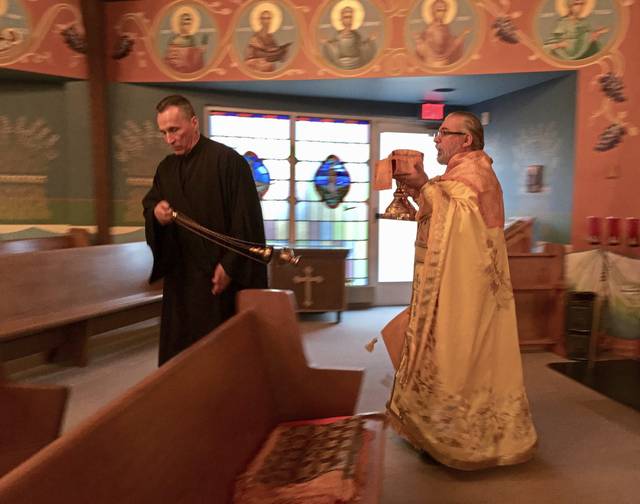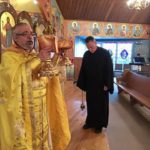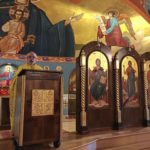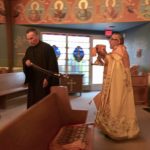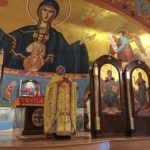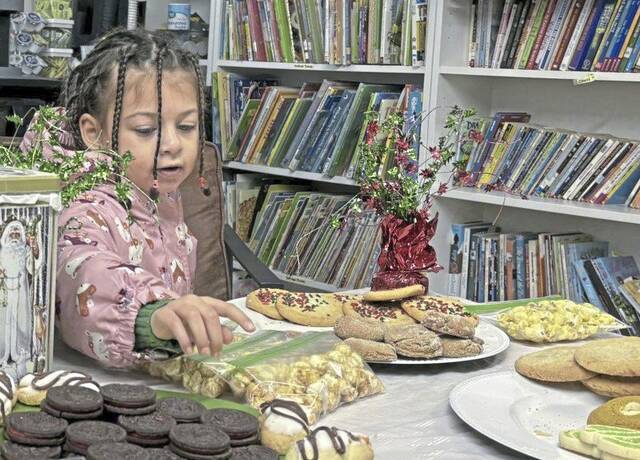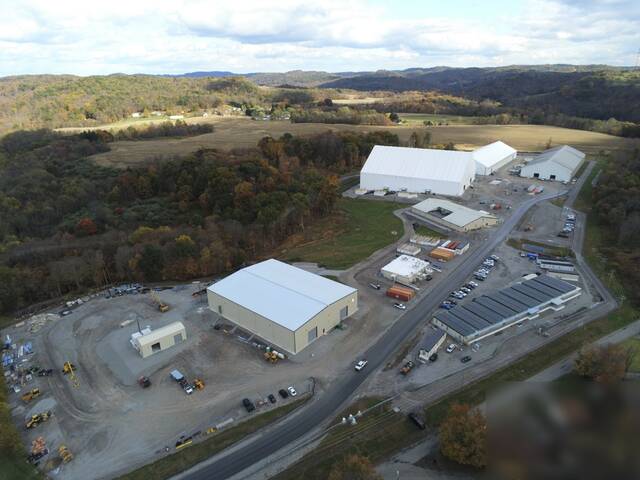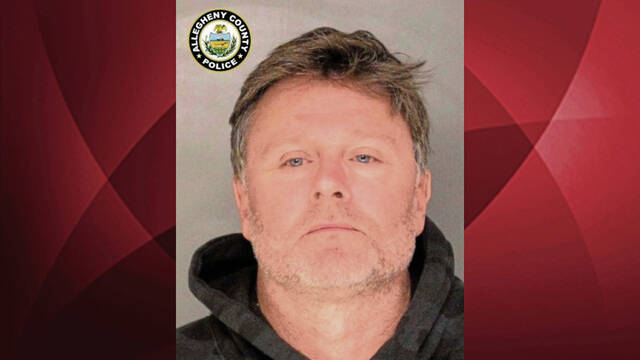The Rev. Meletios Zafaran is preaching on the birth of John the Baptist. He’s speaking in Arabic, so not everyone in the congregation understands what he’s saying.
During the Sunday evening sermon, he touches his temple and then brings his hand down and points to his heart — a gesture that everyone there understands.
Zafaran knows there is an aspect of religious faith that is beyond words. But he also knows the importance of people worshipping in their own language.
The Orthodox Christian priest is part of a new effort to evangelize Arabic speaking people in Western Pennsylvania.
“We are trying to attract other people who are not being reached from around the area,” he said. “There’s many Arabic people around here; we just don’t know where they are.”
Zafaran, pastor of St. George Orthodox Church in New Kensington, recently began celebrating the Orthodox Divine Liturgy in Arabic twice a week in Westmoreland County — 7 p.m. Friday at St. George and 6 p.m. Sunday at St. Michael’s Orthodox Church in South Greensburg.
The Arabic language liturgies are intended as an outreach to Middle Eastern Christians — people from Syria, Lebanon, Palestine, Iraq and Jordan — who have settled in the area but have been unable to find a church home, said Bishop Thomas (Joseph) of the Antiochian Orthodox Diocese of Oakland, Charleston and the Mid-Atlantic.
“The purpose of having it … is the fact that we have a number of people for whom Arabic is their first language,” the bishop said. “When they’re listening to a liturgy, they’re often translating in their minds from English to Arabic. It’s important to us that they be able to worship without distraction.”
Bishop Thomas estimates there are 300-400 Arabic speaking families living in the Greater Pittsburgh area, some of them coming because of the war in Syria and unrest in other Middle Eastern countries.
“Even if there was no conflict in Syria, there are more opportunities here,” he said.
The opportunity that brought Zafaran here was an invitation by then-Bishop Antoun (Khouri) in 2005 to serve as a bilingual priest in Albany, N.Y.
A native of Syria, Zafaran had graduated from the Balamand Theological School in Lebanon in 1993 and was ordained to the priesthood in 1996. Following their time in Albany, Zafaran and his family — he is married with four children — came to New Kensington in 2010.
‘Accommodating all nations’
Both St. George and St. Michael’s parishes have their origins in the immigration of Middle Eastern Christians to Western Pennsylvania in the early 20th century. Today, both parishes consider themselves pan-Orthodox and multi-ethnic.
Zafaran estimates there are four or five families of Arabic speakers at St. George. The Rev. John Nosal, pastor at St. Michael’s, estimates about 10% of his congregation is Arabic speaking.
“That’s a bit of a shift,” Nosal said. “When I got here in 1988, no one here spoke Arabic as a first language. Virtually no one spoke it as a second language.”
The second-, third- and fourth-generation Americans who still attend church pride themselves on being American and are sensitive about the use of languages other than English, Bishop Thomas said.
As a result, the Antiochian Orthodox Christian Archdiocese of North America, despite its connection with the ancient Church of Antioch and the Arabic-speaking mother church in Damascus, Syria, gradually embraced all-English liturgies, he said. In the 1980s, the Antiochian Archdiocese grew as a result of evangelism and conversions to Orthodoxy by large groups of evangelical Protestants.
The more recent experience of the Antiochian Archdiocese in North America is consistent with the historic Orthodox practice of offering the liturgy in the language of the people, but it does not preclude serving the liturgy in other languages, Bishop Thomas said.
There’s a growing awareness of non-English speakers in the United States who need to be served by liturgies in their native language – including Arabic speakers and Spanish speakers, he said.
“Part of being pan-Orthodox is being accommodating to all nations,” he said. “We don’t limit ourselves to English if, by using another language, it will evangelize people. … We will continue to be an English-speaking diocese, but we will also do what we can to accommodate and to welcome people not only of Arabic descent … but also Hispanics.”
Bishop Thomas said it’s not unlike the various ways that corporate America accommodates non-English speakers. “We’re sanctifying that good business practice in the church,” he said.
So far, the project has gotten off to a slow start, with 13 people attending last Sunday’s service at St. Michael’s, but Bishop Thomas is optimistic.
“It’s a good start. It’ll grow,” he said.
“There’s probably many more who, when they get wind of there being services in Arabic, God willing they’ll come here,” Nosal said. “So we’ll see who comes out of the woodwork because of this being offered.”


